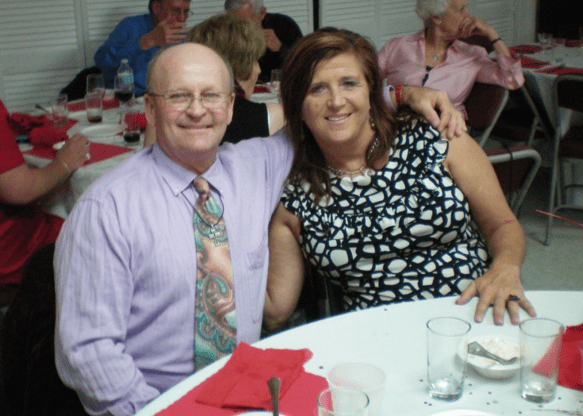It’s classic, Shakespearean even. (Romeo and Juliet).
Boy Meets Girl in rehab, AA or group therapy and they fall ‘in love.’
Warnings fall on deaf ears. Their focus shifts from recovery to each other while they float off on a pink cloud.
Then the bubble bursts.
If the relationship fails, it’s heartbreaking. Betrayal is triggering, to say the least. I’ve been there more than once. It can be tricky.
On the other hand, a strong bond with someone who shares your challenges can be the most meaningful, supportive, enduring relationship ever.
You become a tag team, helping each other out.
There’s also the possibility you could both be in a downturn at once!
Then you’re out to sea in a flimsy canoe rocking back and forth.
Here are some tips to make your recovery raft more reliable.
1. Develop and Maintain Separate Support Systems.
I know you’re heard this one before, but an impartial outsider to lean on can be a lifesaver. It’s money in the back.
When my husband came home drunk; spoiling for an argument, I dodged the ticking time bomb by calmly leaving the house for my BFF’s; saying ‘I’ll be right back.’ While I was gone, his abandonment issues kicked in. He hasn’t had a drink since.
2. The ‘Savior’ Syndrome? Save It.
You shouldn’t work harder at someone else’s recovery than they do. Not only does it hinder their growth but when trouble shows up you’ll be so ‘other’ focused you won’t anticipate it.
3. Don’t Comply with Non-Compliance.
One boyfriend with bipolar disorder struggled with substance abuse. He refused treatment. I let it slide. Never again!
He remained depressed and stole my money to buy drugs. He was smoking up a storm while I was at work.
When I figured it out he refused to leave. I had to call the cops to remove him. By then he was out on the balcony, threatening to jump from the 12th floor. Luckily, they talked him down; saving his life.
4. Meet The Family.
They have known your partner much longer than you have so they can provide a helpful historical perspective. Most families can and will support you if a situation gets too dicey; threatening your recovery. You can’t let that happen.
5. Make Use of the ‘Bi’s and the ‘Polarities.’
Yes, you’re the same but different, too. Build on the shared desire to stay well. Communicate your differences. Your varying interests can lead to activities you both will enjoy!
For example: My husband is fascinated by the Civil War. When we visited relatives in Kentucky, we visited local historical sites and had a ball!
In any event, you’ll both grow by moving towards the midline.
6. Fight Fair.
Rehashing old baggage breaks every rule in the book.
Give up the need to be ‘right.’ Take ‘time outs’ if things escalate. Speak only for yourself, using ‘I’ terms, not ‘you’ ones.
Never, ever attack each other’s religion or spirituality. During tough times, faith may be the only thing between your loved one and a disastrous decision.
7. Set A ‘Zero Tolerance’ Policy.
Intoxicants can interfere with your medications. The combination is no good no matter which way you spin it. If you need drugs and alcohol to enjoy yourselves, you might not be that ‘right’ for each other.
8. Keep Your Ears and Eyes Open.
“Love is Blind” is a familiar saying for good reason.
Watch for actions or stories that contradict or don’t make sense.
One prospective partner lied about his sexuality. He’d been candid about his HIV status so I assumed he was otherwise truthful.
Starry eyed in love, I missed the first of many deceptions; ending up in a higher risk lifestyle than I’d planned.
Bottom Line:
Constant vigilance and guarded optimism are crucial when both people in a couple are striving for ongoing recovery. If you’re not attentive when adversity strikes, you’ll go down with the ship.
The Flipside.
Even with bipolar disorder, life is so beautiful it’s well worth protecting.
Keep in mind the ‘Power of Two.’
Allison Strong is a former Alternative Rock Disc Jockey from LA and Phoenix. She has written for “The Arizona Republic,” “Hits Magazine,” bphope.com and NewLifeOutlook Bipolar. She’s working on a book, (along with everyone else). Her personal blog is: bipolarbrainiac.wordpress.com. Twitter handle: @bipolarbrainic. For more of her IBPF posts, click here.


